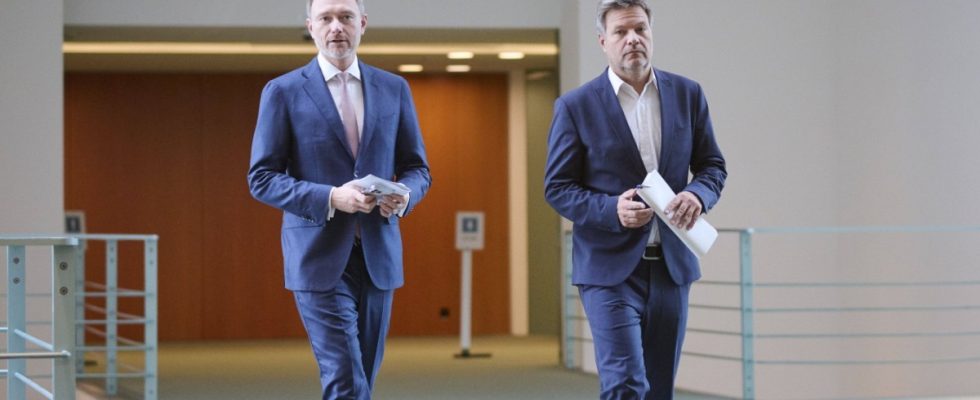The summer break is still dampening the debate, but what the government will be arguing about in the fall is already becoming abundantly clear: the country’s shaky economic situation and how those who govern it intend to get it under control. Since it has become a German unique selling proposition among industrialized nations that they continue to have to reckon with negative growth rates, unrest and the number of ideas on how to get rid of the misery have been growing. However, these ideas by no means point in the same direction.
Federal Minister of Finance and FDP leader Christian Lindner sees a need for action. “It’s time for a relief and growth agenda,” he said Süddeutsche Zeitung. Germany’s competitiveness must be sustainably strengthened. “For that we need above all better site conditions.” He has already had it written down how he thinks this can be achieved. His “Growth Opportunities Act” provides, among other things, for investment premiums, better depreciation options and more generous research funding. His planned “Future Financing Act” is intended to improve capital market conditions for start-ups. According to Lindner, further steps must follow, “for example by reducing excessive bureaucracy”.
A lifting of the debt brake is “out of the question” for the finance minister
Nobody would probably object to less bureaucracy, but the conflicts lie dormant elsewhere. Since it became known this week that the government wants to give the Taiwanese chip manufacturer TSMC five billion euros to settle in Dresden – after Intel is supposed to get ten billion for a planned factory in Magdeburg – the question of industrial policy has arisen Course. Subsidies worth billions or rather lower taxes and reduce bureaucracy?
The Greens group promptly called for a €30 billion economic stimulus package. “In an inflationary environment, always new government economic programs would be exactly the wrong way,” says FDP Minister Lindner. He points out that public investments from the federal budget and the climate and transformation fund are “at a record level”. “There is no need to use any more government funds.” A lifting of the debt brake or the misappropriation of funds from the Economic Stabilization Fund, which are actually only intended for the electricity and gas price brake? For Lindner “excluded” for “fiscal, economic and legal reasons”.
Unlike his parliamentary group colleagues, Economics Minister Robert Habeck (Greens) also considers a classic economic stimulus program, in which the state spends billions to boost demand, to be of little use. On the one hand, such a package would further increase prices in the construction industry, for example, and thwart efforts to lower inflation. But above all: “We don’t primarily have an economic problem in Germany, but a structural one,” says Habeck’s house. The central challenge is the many obstacles to investment that companies have to contend with, many of which have grown over decades. From the point of view of the economics minister, these include the shortage of skilled workers, the export bias of the German economy, which is problematic in times of global economic slack, and the reduced competitiveness of the location.
In analyzing the situation, there are definitely similarities between the green economy minister and the liberal finance minister. Habeck is far more willing than Lindner to fight against the location weakness with subsidies. For example, given the complaints from many companies about high energy prices.
The economist Sebastian Dullien, head of the Institute for Macroeconomics and Business Cycle Research of the trade union-affiliated Hans Böckler Foundation, also considers the uncertainty about how much electricity in particular will cost in the future to be the most important brake on investment. Habeck therefore wants to build a bridge to the age of – allegedly – cheap green electricity for energy-intensive companies with a state-subsidized industrial electricity price. Lindner is strictly against it: too expensive, too unfair compared to other companies, unconstitutional, according to his arguments. According to the government, the negotiations for an industrial electricity price are correspondingly deadlocked. The SPD-led chancellery also shows little enthusiasm – although social-democratic economic politicians are among the most vehement about the idea.
After the summer break, the second half of the legislative period begins. The discussion material should last until the end of the traffic light.

